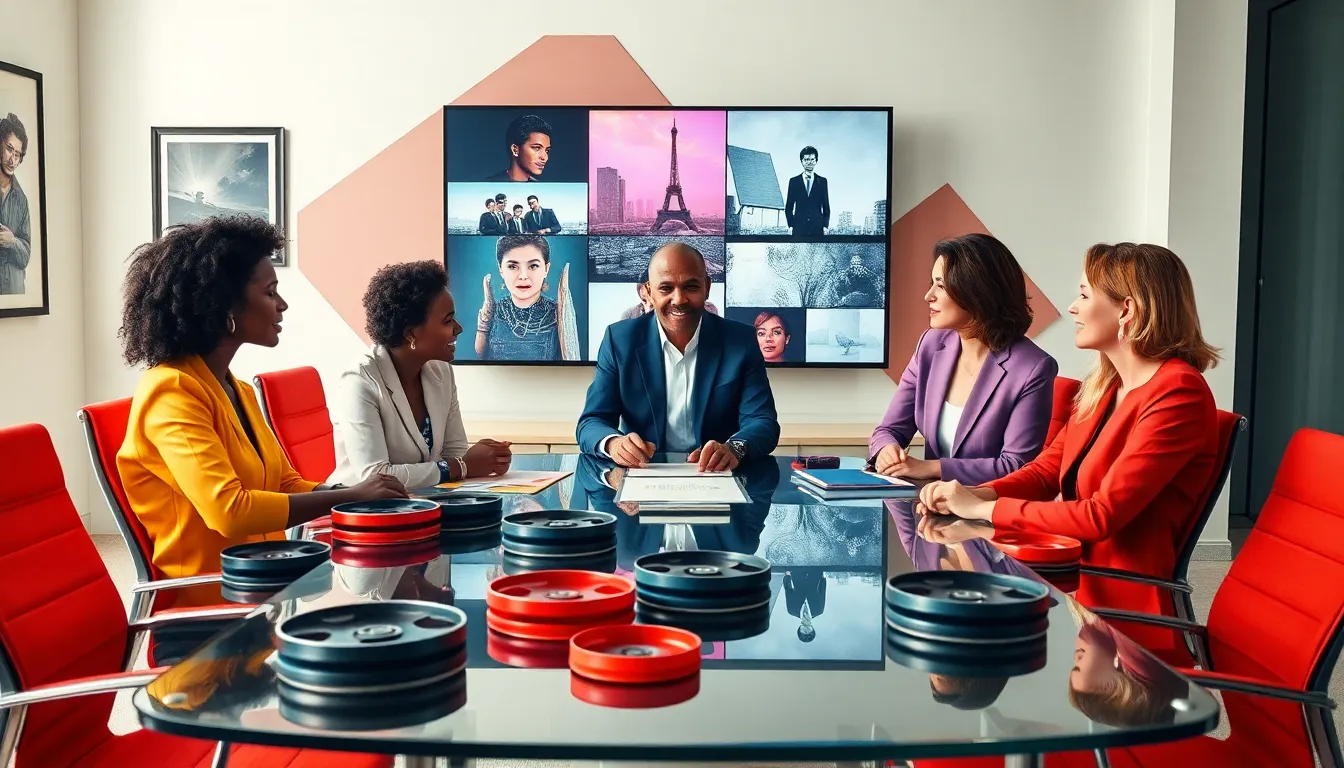Picture this: a croissant in one hand, a glass of Bordeaux in the other, while you scroll through your favorite French pop culture hits. Intrigued? You should be. French pop culture is not just a mere afterthought: it’s a captivating blend of artistic prowess, musical innovation, and theatrical boldness that truly reflects the essence of France itself. The rich history of French expression weaves through various facets, from the iconic films that grace our screens to the catchy tunes that make us dance in our kitchens. So, buckle up as we jump into the vibrant world of French pop culture, embracing everything from historical roots to contemporary trends.
Table of Contents
ToggleHistorical Overview of French Pop Culture

The origins of French pop culture can be traced back to the 19th century, a period rich in innovation and artistic fervor. France, with its cultural revolutions and significant artistic movements, laid the groundwork for what would become a captivating tapestry of expression. The Impressionist painters, like Claude Monet and Edgar Degas, began to revolutionize how art was perceived, moving away from the rigidity of the past and allowing expression to flourish in captivated colors on canvas.
Fast forward to the mid-20th century: the explosion of cinema became the heart of French pop culture. Notable directors such as François Truffaut and Jean-Luc Godard pioneered the French New Wave in the late 1950s, shaking the industry’s foundations. Their films, innovative in style and approach, offered fresh perspectives and drew audiences into intellectual discussions, blending art with fervor while showcasing contemporary life, love, and struggle.
By the late 20th and early 21st centuries, French pop culture saw a shift with the emergence of global influences. The advent of the internet transformed the landscape significantly. Music, film, and fashion began to converge, creating a milieu where every corner of the globe had a say in French creativity. Still, even though all these changes, the core theme of expression, creativity, and cultural pride remains vibrant in French pop culture, proving its resilience and adaptability against the test of time.
Key Influences on Modern French Pop Culture
Today’s French pop culture is a melting pot, brimming with influences from various art forms, social movements, and technological advancements. First and foremost, the globalization of music has played a crucial role. French artists like Daft Punk and Christine and the Queens are not only celebrated at home but have transcended borders, intertwining with international styles and genres. This collaborative spirit generates fresh sounds that resonate with audiences worldwide.
Secondly, the rise of fashion houses in Paris has significantly influenced pop culture. Designers like Coco Chanel and Jean-Paul Gaultier laid the foundational stones of haute couture, impacting not just clothing but lifestyles. The Parisian chic aesthetic infiltrates music videos and films, showcasing that fashion is an extension of personality and cultural identity.
Also, the avant-garde nature of French literature continues to inspire the arts, giving voice to emerging playwrights and screenwriters. The blending of poetry and text back into modern narratives allows storytellers to create multifaceted characters that reflect contemporary society’s complexities. This cultural cross-pollination is evident in modern films and series that depict varied aspects of society, drawing from the rich narratives of French literature.
Plus, the influence of French feminism, particularly post-1968, has reshaped the themes explored in pop culture. Voices advocating gender equality and social justice have permeated music and films, inspiring a new generation of creators to express their viewpoints boldly. So, modern French pop culture vividly reflects social awareness and activism while maintaining its artistic integrity.
Iconic Figures in French Pop Culture
French pop culture boasts a roster of iconic figures who have shaped its landscape through their creative genius. From filmmakers to musicians and fashion moguls, these individuals have left an indelible mark on society. One such figure is Serge Gainsbourg, a musical icon whose eclectic style and provocative lyrics redefined French pop music. Gainsbourg’s unique blend of genres, from chanson to reggae, established him as a cultural force, paving the way for future artists to experiment and push boundaries.
The Role of Music in French Pop Culture
Musical icons like Edith Piaf, the queen of French chanson, continue to inspire generations. Her raw emotional delivery and poignant storytelling encapsulated the essence of French life, conveying themes of love, loss, and hope. Meanwhile, the ’90s and early 2000s saw the rise of pop artists like Alizée and the boy band Les BB Brunes, symbolizing a wave of new sound that resonated with youth culture.
Also, contemporary figures like Angèle and PNL represent the evolution of French rap and pop, highlighting the diversity and richness found within modern French music. Their unique styles, accompanied by vibrant visuals, solidify their status as representatives of a new generation navigating both the local and global music scenes.
Emerging Trends in French Film and Television
In the realm of film and television, France has not slowed down. In fact, it has embraced innovative storytelling techniques and genres that resonate with modern audiences. The resurgence of film festivals, particularly in Cannes, showcases new filmmakers who investigate deep into social issues and personal narratives with more urgency than ever before.
Streaming services have also transformed how audiences consume French cinema, introducing an array of content that ranges from classic films to modern series. Notable examples include Lupin, which gained international acclaim for its engaging storytelling, blending heist drama with cultural references. The series proves that French narratives have the power to captivate audiences worldwide, blending tradition with modern sensibilities.
Also, there is a distinct focus on representation in contemporary French media. Efforts to showcase diverse narratives on screen reflect the evolving cultural dynamics within the country. Filmmakers are increasingly interested in telling stories from various perspectives, demonstrating that the richness of French culture lies in its diversity.
The Impact of Social Media on French Pop Culture
Social media acts as a battleground for modern pop culture, especially in France. Platforms like Instagram, TikTok, and Twitter have reshaped how artists interact with fans, becoming essential tools for marketing and expression. French influencers play a significant role in shaping trends, highlighting everything from fashion statements to culinary adventures.
Young creators leverage platforms to share their art and thoughts, leading to the emergence of new styles and movements that often gain traction globally. The rise of short-form video content, particularly on TikTok, has allowed for rapid dissemination of trends, whether it’s dance challenges or culinary recipes. This instant access to new ideas fosters a dynamic cultural exchange, presenting a vibrant, ever-evolving French pop culture landscape.
Besides, social media challenges the traditional gatekeepers of pop culture, allowing underrepresented voices to emerge. Here, new talents can gain visibility and shape trends without needing the backing of major industry players. This democratization leads to a richer cultural dialogue, reflecting a broader spectrum of experiences and viewpoints that continue to enrich French pop culture.

